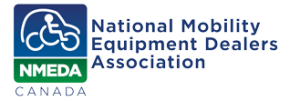For seniors and those with progressive muscle weakness, like MS, MD and others who have trouble driving, hand controls can compensate for decreasing strength and range of motion. Occupational therapists often recommend such devices.
Low-tech hand controls are less costly ($100s) than high-tech ones ($1,000s), although electronics can be used in conjunction with mechanical controls to customize systems.
The four basic low-tech designs are:
- Push/pull: Push the control forward to brake; and pull back and hold to accelerate. Not the most popular control as it must be pulled toward you and held to maintain speed, requiring more arm strength.
- Push/twist: Like on a motorcycle, it requires twisting the handle for the gas and pushing the hand control lever for the brakes. Unlike the push/pull in that the driver doesn’t have to pull the lever back and hold to accelerate.
- Push/right angle: (Most popular) Drivers push forward for the brakes. Push down toward your thigh with a slight pull to your torso for acceleration. Acceleration with the push/right is less fatiguing than push/pull as the weight of your hand holds the desired speed.
- Push/rock: Not necessary to keep a grip on the control. The driver rocks his or her hand on the top of the handle, rocking back to accelerate and forward to apply the brakes, like a slot machine.
All four can be mounted on the right or left side depending on your preference or abilities.
Some manufacturers offer push/twist and push/pull hand controls with power assist, making it easier to operate and alleviating the fatigue factor. Power assist also accommodates drivers with limited range of motion.
If manual controls are still too difficult, the added power assist could do the trick, and cost less than electronic controls.
There are also high-tech solutions available.
This mobility safety update has been brought to you by NMEDA – the National Mobility Equipment Dealers Association. Need some information on how to make your vehicle wheelchair accessible or upgraded with the latest and most convenient features? Contact a NMEDA dealer in your local area. Your local NMEDA member is an expert in mobility equipment and accessibility!
